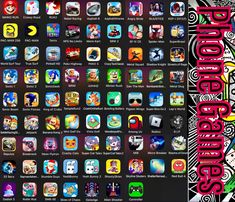In the rapidly evolving world of research, staying ahead of the curve means leveraging technology effectively. With the rise of artificial intelligence, researchers now have access to a plethora of tools designed to streamline their work, from literature reviews to writing and plagiarism checks. Here, we explore five remarkable AI tools that can significantly enhance your research workflow, making it easier and more efficient.
Research Rabbit: Your Personal Research Assistant
Research Rabbit is an innovative tool that revolutionizes the literature review process. It operates similarly to Spotify, allowing you to create collections of research papers based on specific topics. By uploading your research papers, the tool recommends additional relevant and recent studies, making your literature survey quicker and more effective.
One of the standout features of Research Rabbit is its ability to visualize networks of research papers. You can see which papers are heavily cited, helping you prioritize your reading list. Additionally, you can explore the works of particular authors, giving you insight into their contributions to the field. Best of all, Research Rabbit is completely free and the founders have no plans to introduce paid tiers, making it accessible to all researchers.
Chat PDF: Engage with Your Documents
Chat PDF offers a unique way to interact with your research papers. Imagine being able to chat with your PDF documents and get answers to your questions. This tool allows you to upload a PDF and then ask specific questions about its content. This feature is particularly useful for researchers who are new to a field and may struggle with complex terminology or intricate writing styles.
Chat PDF can summarize lengthy articles or clarify difficult concepts, making it an invaluable resource for understanding complex research. Just like ChatGPT, this tool searches the entire PDF to provide accurate responses to your inquiries. And yes, it’s free, making it a fantastic resource for anyone looking to deepen their comprehension of academic literature.
Trinka: Tailored for Academic Writing
Trinka is more than just a grammar checker; it’s specifically designed for academic writing. This tool goes beyond basic spell-checking to address technical writing issues, sentence structure, tone, and style. Trinka can identify nuanced mistakes that are often overlooked by standard grammar checkers, making it a great companion for researchers aiming for precision and clarity in their writing.
While Trinka also offers features like plagiarism detection and citation checks, its strength lies in its ability to enhance the language quality of your documents. The free version allows for corrections on up to 5000 words, which is quite generous for most researchers. This means you can polish your manuscript thoroughly before submission without incurring costs.
Consensus: Evidence-Based Search Engine
Consensus is a cutting-edge search engine that merges the functionalities of Google search with academic rigor. When you pose a question, Consensus sifts through peer-reviewed journals to provide answers grounded in scientific evidence. Unlike traditional search engines that may lead you down a rabbit hole of blog posts and unrelated articles, Consensus delivers reliable, research-based information.
This tool is particularly useful for researchers looking to clarify doubts or ensure that their inquiries are aligned with current scientific consensus. It’s a free tool that significantly enhances the quality of information accessible to researchers, making it easier to stay on track with your studies.
Conclusion: Streamlining Your Research Journey
The tools mentioned above can dramatically enhance your research experience. From managing literature and understanding complex papers to ensuring your writing is polished and original, these AI solutions are here to support you. By incorporating tools like Research Rabbit, Chat PDF, Trinka, Consensus, and Page.ai into your workflow, you can save time, improve the quality of your research, and ultimately publish more effectively.
As the world of academia continues to evolve, embracing these technologies will be key to staying competitive and successful in your research endeavors. Whether you’re just starting out or are a seasoned researcher, leveraging these AI tools can help you navigate the complexities of academic writing and publishing.
For those looking to delve deeper into the art of research writing, consider joining a structured course to enhance your skills further. Remember, while these AI tools can assist you tremendously, the foundational knowledge and skills will always be paramount to your success.







